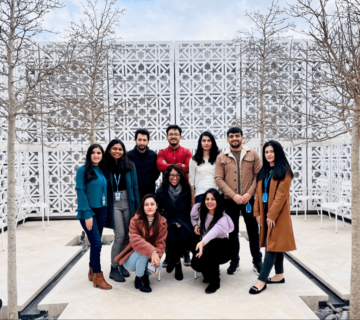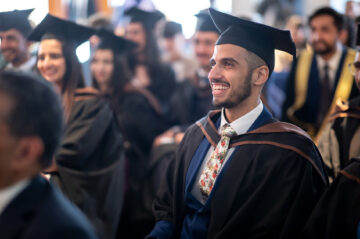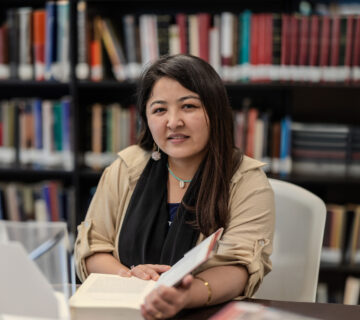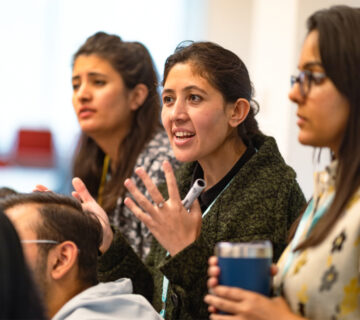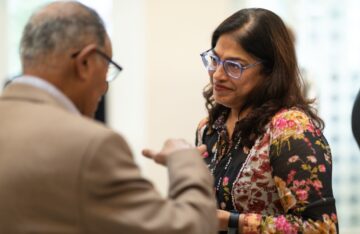The IIS is pleased to welcome 48 new students on its Graduate Programme in Islamic Studies and Humanities (GPISH)and its Secondary Teacher Education Programme (STEP). The students, who joined these postgraduate programmes represent the diversity of Ismaili communities in both background and origin, coming from Canada, France, India, Iran, Pakistan, Syria, Tajikistan, Tanzania, UAE and the USA.
STEP is a joint initiative between the IIS and the Institute of Education, University of London, to train teachers for the delivery of the Institute’s Secondary Curriculum materials, which are currently under development. The new cohort of students come from a range of academic backgrounds, including Law, Biological Sciences, Computer Science, Philosophy, Religious Education, Language and Literature. Initially piloted with students from Canada, India, Pakistan, Tajikistan and the USA. This year, the programme intake has been expanded to include students from France, Syria, Tanzania and the UAE.
During the two-year programme, STEP students undertake courses at the University of London’s Institute of Education and the IIS. Upon completion of the programme, they will gain two postgraduate qualifications: a Master of Teaching (MTeach) and an MA Education (Muslim Societies and Civilisations). Having qualified as secondary-level teachers, the graduates will go on to undertake professional teaching positions in their home countries.
GPISH is a three-year graduate programme which acts as preparation for a research degree and a stepping stone to a variety of career opportunities. Past graduates have pursued careers in a range of fields including media, academia, education and development.
For the duration of the first two years at the IIS, GPISH students take a variety of courses in art, philosophy, religious studies, history and the social sciences. At the end of the first year, they have the opportunity to travel for an Arabic or Persian immersion programme, in order to assist them in studying primary academic sources in these languages.
Students spend their third-year studying for a Masters degree in subjects resonating with the aims of the programme. Past graduates have pursued Masters Degrees at leading universities such as the universities of Oxford and Cambridge, the London School of Economics (LSE), the School of Oriental and African Studies (SOAS), and the Institute of Education at the University of London.

